2023 Dishwasher Buying Guide – Best Dishwashers for Your Money

The appliance industry has faced all sorts of supply chain disruptions since the start of the pandemic (everything from the sourcing of raw materials to distribution has fallen behind), with the result that new dishwashers are costlier and harder to find. If you’re intent on making this the year you buy a new dishwasher, our 2023 dishwasher buying guide will will simplify your buying process by helping you focus on what really matters:
- How reliable is each brand and what is the quality of their customer service when the product breaks?
- How can you determine which dishwashers are better at the task of dishwashing?
With this info, we hope to help you find the best dishwasher for your money. And if you don’t, book an appointment to have your current dishwasher serviced.
Reliability and Manufacturer Support
What service is available in my area?
The first bit of research you should do with any brand of dishwasher is to see what service is available in your area (at the end of the guide, we provide a table with links to each brand’s service locator). There’s nothing worse than buying a product only to discover that when it breaks, whether a year or ten after buying it, there is no way to get it fixed where you live.
- Some areas in the US have no servicer for the brand.
That’s not to say that no one in the area will be able to service the dishwasher, but it usually means those technicians aren’t very familiar with the product and parts may be difficult to come by. Don’t risk it.
- Some areas have only one authorized servicer.
Do your research before you commit to a brand. If it sounds like they are a nightmare to work with—poor communication, low success rate, lack of care for their customers—don’t sign yourself up for the nightmare in case your product breaks under warranty.
How much is the lifetime cost of ownership?
As with cars, there is a lifetime cost of ownership when it comes to dishwashers, factoring in:
The generosity of the manufacturer warranty
At the end of guide, we provide a table that includes warranty information for each brand. Additional warranty related items to consider include:
- Full v. limited warranties.
Most of these warranties work the same way: one or two years’ coverage for the whole dishwasher, more years to cover the cost of electronic components and racks (no labor), and longer coverage for door liners and inner tubs. No-brainer here: more years are better than fewer. Beyond that, most brands offer a limited warranty, as opposed to a full warranty, meaning it doesn’t meet federal standards for a comprehensive warranty. Most customers won’t notice the difference, but a limited warranty provides more leeway for brands to potentially deny coverage or not reimburse for a faulty, unrepairable product. Further no-brainer here, full is better than limited.
- Brands that play fast and loose with the warranty.
On the flip side of that, it’s worth noting that warranty details don’t always tell the full story. Some brands go the extra mile regardless of whether the product is under warranty—“Oh you’re a few months out of warranty, don’t worry, we’ll take care of it”—or whether the issue is with the appliance. We have known manufacturers to pay for a warranty visit when it was just an issue with the home or a product education issue (looking at you, Samsung, Cove, Bosch and Thermador).
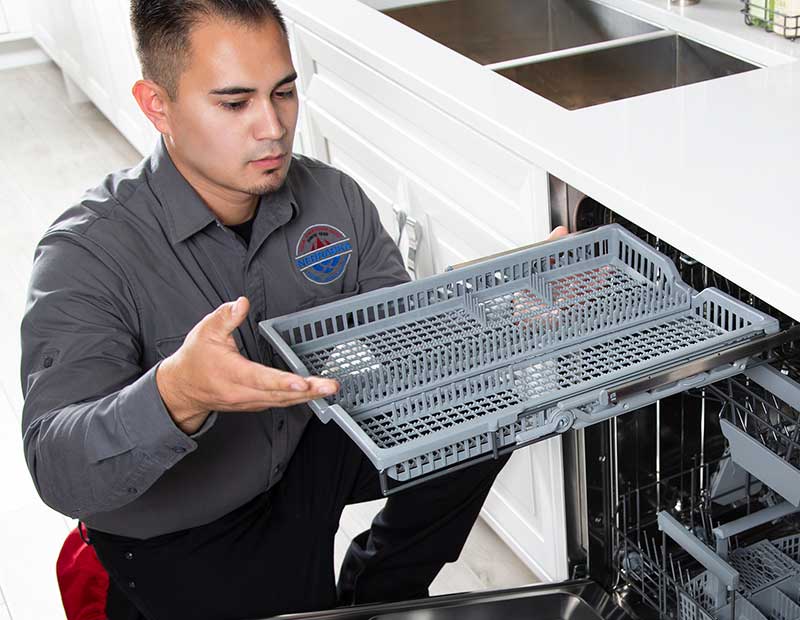
Yes, longer, more comprehensive warranties are better, but a better warranty also indicates that a brand is more willing to stand behind its customers as well as its product.
Don’t assume your dishwasher won’t break, breakdowns don’t only happen to other people.
BUYER BEWARE, do not be suckered into paying for coverage from an extended warranty company. Read why it’s almost never a good idea to buy an extended warranty here.
How often it will require service
We have data going back years and years and know a thing or two about the reliability of these brands. You can check out the table at the end of the guide for our reliability grades, but here are a couple quick ways to spot reliability:
- European v. domestic US design makes a big difference.
American dishwashers often have built-in choppers / macerators (think a garbage disposal in your dishwasher) to break up larger food particulates, and it’s one of the main reasons dishwashers can get so loud. European-style dishwashers do not, instead opting for a basket / strainer that must be cleaned each cycle. Yes, this is mildly annoying, but this style overall is much more reliable, as the chopper parts frequently break down, clog, or strip out. While American-style dishwashers have made improvements over the past few years to build smaller, quieter, more efficient motors, European-style dishwashers remain the better option. Unless we’re talking about Cove dishwashers. Those are pretty great.
- The higher the cost, usually the more reliable the dishwasher.
While not as complex as a refrigerator, these are complex machines expected to quietly produce spotless dishes without breaking down or leaking. For that reason, you should be wary of any dishwasher that comes cheap. Good design, production and quality assurance cost money. And the more a product costs to build and ensure the quality of, the more it will cost consumers to buy.
- The length of the warranty (and additional warranties) demonstrates a brand’s trust in their product.
This is a good indicator for how much trust the manufacturer has in the quality of their engineering, the error-free nature of their production lines, and the reliability of their products. They wouldn’t offer so many years of coverage if they thought the appliance would be breaking down all the time.
Be sure to check out our dishwasher grades at the end of the guide.
The cost and availability of parts
Don’t worry, we don’t expect you to base your decision on dishwasher pump motor prices, because you honestly shouldn’t be thinking about that when buying a dishwasher. Yes, higher-end models tend to have more expensive parts, but that’s because those parts are higher quality and rigorously tested, meaning they are less likely to break again. Replacing a $50 part twice is more expensive than replacing an $80 part once.
What you should be concerned with is the availability of parts. Low-end brands have a habit of discontinuing parts for older models. So if something important breaks on your dishwasher, you are out of luck, no matter how few years it’s been since you purchased the dishwasher. Which means it’s time to buy a new dishwasher.
The average life span before it needs to be replaced
The range for dishwasher life spans is actually quite broad. Some low-end dishwashers will be lucky to last a half-decade, the average lifespan is around 9 years, and high-end models can last up to 12 or 13 years. And then there is the cream of the crop, the brand-new Cove dishwashers are said to be built to last over 20 years, though it will be 20 years before we know whether there’s any truth to that claim.
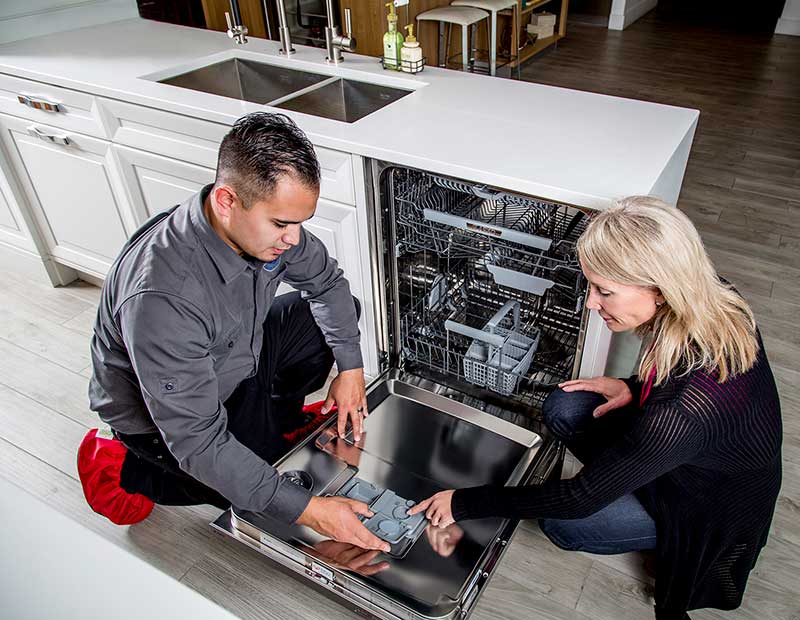
That said, regular maintenance is literally the difference between needing a new pump after 6-12 months, or a dishwasher lasting over a decade without major issue. Dishwashers are super finicky if mistreated, especially following the removal of phosphates from detergents early in this decade. For maintenance tips, check out our article on How to make your dishwasher clean better. The extra years your maintenance buys you will save a lot of money in the long run.
How easy does the brand make owning the appliance?
As servicers, we know the reliability of a product isn’t just about expenses. Worrying about dishes piling up or your floors being damaged by a leak on top of unexpected expenses is a sure way to ruin a day. In other words, reliability has a value outside of money saved in terms of headaches avoided.
There are other ways brands can make a product easier or harder to own:
- How easy do they make installation?
After you buy your dishwasher, installation is the next step. Many dealers offer installation, but not all. Or you may be the sort of customer who wants to shop around for that service. Contact the manufacturer to learn what they can do to support your installation experience.
- How easy do they make warranty calls?
If your product breaks while under warranty, some manufacturers like Cove or Bosch/Thermador, are flexible, allowing you to call an authorized servicer directly and avoid the rigmarole of the call center experience. Other manufacturers, such as Samsung and LG, insist that customers go through an extended phone support experience before they determine service is needed. Sometimes poor communication between the manufacturer and authorized service companies means customers have to repeat information to the servicer. When customers talk to us, it’s clear they do not enjoy this experience one bit.
- How many resources do they provide owners with?
Check out the owner portal of their website. Is there a lot of information readily at hand, including warranty information and manuals? Are there use and care guides covering how to clean the dishwasher or troubleshoot a dishwasher not draining?
QUICK RECAP
- Check for service in your area before you buy
- Take a close look at the warranty info
- Review our reliability and service support grades
- Look around on the website for resources for owners
Dishwashing Excellence
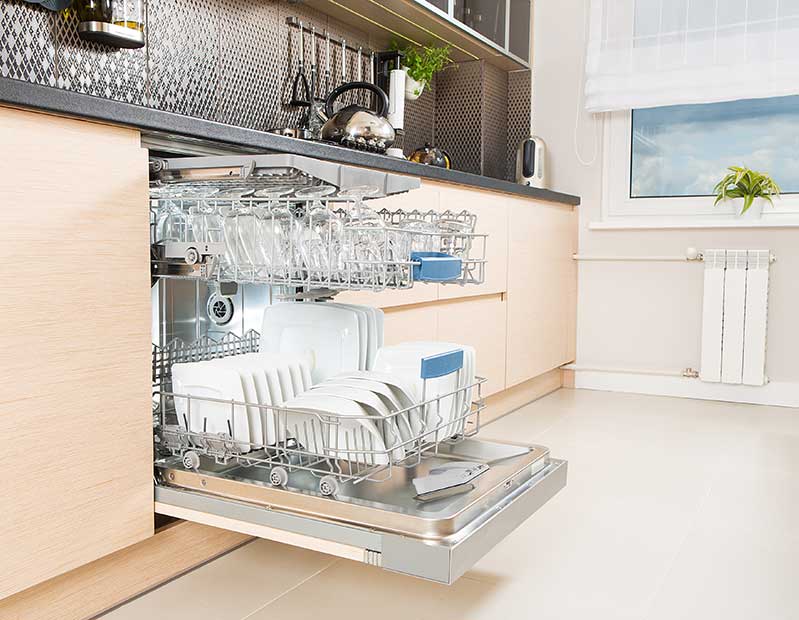
How well does it do the job I’m buying it for?
We believe reliability is one of the most important considerations when buying an appliance, and we hope you agree, but we also understand that, at the end of the day, a dishwasher is there to wash dishes.
So how do you know whether a dishwasher will washes dishes well ahead of time? Simple. Dishwashing is about consistently spraying very hot water across the entire surface area of your dishes, and there are certain dishwasher features that make that possible.
Thus, it’s pretty simple to create a checklist of technical features a dishwasher should have to make for a good washer of dishes:
- Stainless steel tub
There is no bigger indicator of quality than a stainless steel tub. Stainless steel, across the board, outperforms plastic tubs. When it comes to washing dishes, they allow the water to be heated to a higher temperature and better retain that heat for better cleaning. Because of this, they are also more energy efficient. They absorb more noise to disturb you less as they run. They are far more durable, resist corrosion and odors, and don’t spot or stain. Do yourself a favor and buy a dishwasher with a stainless steel tub.
- Moving spray arms on all three levels
If the dishwasher has stationary distribution plates or a single pop-up spray arm on the bottom, the dishwasher will struggle to move water evenly over all the dishes. The more jets and the more they can change where they are spraying water throughout the cycle, the more likely all dishes will receive the rinse they need. We don’t expect you to know by sight, but ask the rep selling you the dishwasher or consult the manufacturer’s product info to find out.
- How easy is it to put dishes in (foldable tines, movable racks, third racks)
Turns out there is a right and wrong way to load a dishwasher. If you’re the type to stack as many dishes in the dishwasher as you can, you’re not allowing for water flow among all the dishes or drainage at the end of the cycle. But we don’t blame you for trying to fit more dishes into the dishwasher. The secret to solving your dishwasher loading issues? Buying a dishwasher that makes it easier to load. More tines and foldable tines at that are a must. Movable racks help accommodate dishes of varying sizes. And, one of the best inventions in dishwashing in some time, 3rd-level silverware trays, add even more real estate to your dishwasher. When researching dishwashers, ask if the brand has any material demonstrating max loading conditions or recommended loading patterns. Seeing is believing that there is a better way to load your dishwasher.
- Features to help with drying
Though the principle job of a dishwasher is to wash dishes, anyone that’s ever pulled out a still wet plastic container or a cup with a pool of water in its base will attest to the need for drying to balance out the washing. Cove dishwashers were held off the market until it had a solution for drying plastics, and now it’s best-in-class for drying. Samsung also rolled out a cool feature that automatically pops open the dishwasher door at the end of cycle to aid in drying, which mostly works.
New technological advances are always possible. For instance, some of the more high-end Bosch dishwashers use a DC drain pump that, if it detects a clog, will run backwards to unjam it before it breaks the dishwasher. These features are nice, but no brand has truly revolutionized dishwashing for a while.
But all the technology in the world won’t matter if you’re not using the dishwasher properly or taking care of it between cycles. For use and care tips, check out our article on How to make your dishwasher clean better.
Two Other Cost Considerations
What about energy and water efficiency?
Energy and water efficiency should be a consideration when buying a new dishwasher—especially water efficiency—but we don’t want to paint a picture that the more efficient the dishwasher the better it performs across the board.
- It’s worth it to pay for energy efficiency
Efficiency has come further in dishwashers than in just about any appliance, aside from maybe refrigerators, and that efficiency adds up to a lot of savings over the lifetime of your dishwasher. Though older models cost less, their comparable inefficiency means you’ll be paying back those savings through energy and water bills over the years. It’s worth it to pay upfront for energy efficiency, so buy the newest models when possible.
- Efficiency means longer, but quieter cycle times
The most efficient dishwashers often have 3-4 hour wash cycles. Less efficient dishwashers can accomplish a similar cleaning in shorter times by using more water and powering larger wash pumps. Before you think there’s no way you could stand listening to the dishwasher run for 4 hours, remember that, because less water is being pumped through smaller pumps, efficient dishwashers are almost always quieter dishwashers as well. In fact, when installed correctly, some of the most efficient dishwashers—read: Bosch and Cove—are so quiet that both companies opted to add a feature in which a light is projected on the floor to display what part of the cycle the dishwasher is in.
- Rumor has it efficient dishwashers don’t dry as well, but that’s often just a preset mode
By default, most ENERGY STAR® rated dishwashers have the “heated dry” mode disabled on the default cycle for better efficiency ratings. The good news for those who want their dishes to emerge from the dishwasher bone dry, “heated dry” can be reenabled for the default cycle (see the Owner’s Manual or online help resources). This doesn’t guarantee bone dry dishes, but it will help.
- Energy ratings don’t tell the full carbon footprint story
ENERGY STAR® ratings don’t take into account the resources, water, and energy used to produce the appliance, or what it will take to recycle the appliance at the end of its life. So, although it is admirable to try to reduce your carbon footprint, we consumers will never know which dishwashers truly have the smallest carbon footprints.
- Check for rebates and special offers from local utilities and government agencies
You should always check to see whether any rebates and/or special offers are offered in your area for choosing an ENERGY STAR® product. Why not try and save money on a better dishwasher?
Clearly, go for the ENERGY STAR® product where you can—the drawbacks are by and large overblown—but don’t base your decision solely on ENERGY STAR® ratings as they don’t tell the whole story of the product’s water and carbon footprint.
How will it perform as an investment in my home?

That’s right, appliances can be an investment in your home. A recent Zillow report showed that homes with professional-grade appliances had sale prices 29% higher than similar homes without professional-grade appliances.
Why? Well, for one, high-end appliances provide a lot of utility and value to homeowners. The kitchen is the beating heart of most homes, and appliances are what make them run. So the better the appliance, the better the home. For another, high-end models are exceptionally beautiful status symbols. So it stands to reason that homebuyers would pay a premium for homes with professional-grade appliances.
And guess who else gets to enjoy these benefits as long as they own the house? You!
So if you’re considering some home renovations to increase the value of your property, just remember, replacing your appliances requires a whole lot less headaches and work than, say, remodeling a bathroom.
What Is the Ultimate Cost of a Dishwasher?
Some folks still get sticker shock when they see a dishwasher over $2000 (as is the case for the top-of-the-line models from Bosch and Cove to name a few), but we encourage you to think differently about that cost. Remember, this is a product that is performing an essential but thankless task for your household, nearly every other day for 10 years on average (and, at times, every day when you have lots of guests over). It may run up to 2,000 wash cycles in its lifetime (i.e. 2,000 days when you don’t have to wash all your dishes by hand).
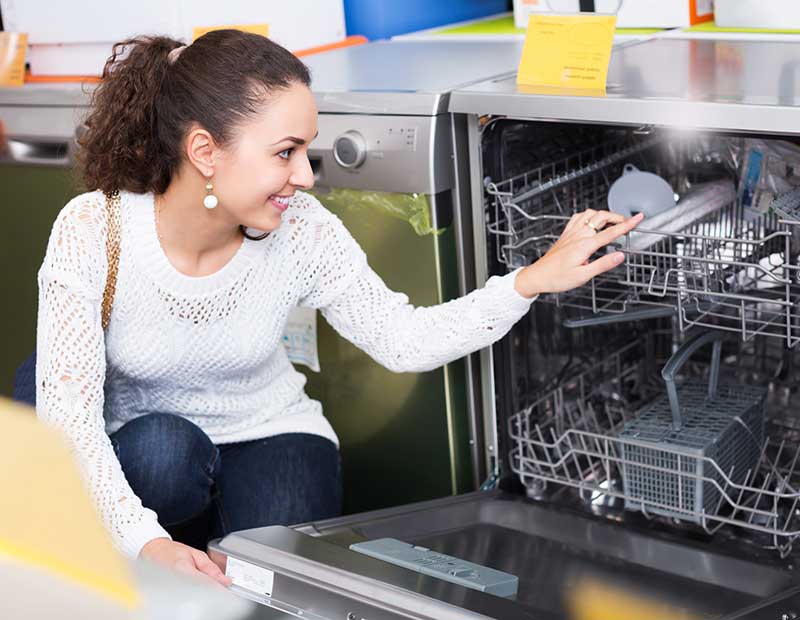
When you break the $2,000 down, that means you are ultimately paying $1 per wash cycle. And if Cove’s promise of a lifespan of 20 years is accurate, you’re looking at 4,000 cycles for $2,000, or $0.50 a wash cycle. We don’t know about you, but paying two quarters to not have to wash all our dishes by hand is a bargain.
Then you have to consider all the other added value and savings. Let’s assume that after reading this guide, you’re still not convinced it’s worth buying a $2,000 Bosch dishwasher over a $600 Maytag dishwasher. First, you have to take into account that the Bosch will perform better at the task of washing dishes. That’s less headaches for you, fewer dishes that have to be rerun through the dishwasher.
Then factor in that the Bosch dishwasher is far less likely to break down than the Maytag, is covered by a far more generous warranty, and can offer better service support (that is, fewer failed repairs), and you’re looking to save more money. The average cost of dishwasher repair is $160, so even one or two less non-warranty service calls and you’re saving hundreds of dollars. Then factor in that the Bosch dishwasher will likely last at least 3-4 more years than the Maytag, giving you 546 to 728 more wash cycles before it needs to be replaced.
Finally, the Bosch dishwasher will add value to your home (increasing sale price) and your life (the pleasure of owning it). Clearly, the cost of owning a dishwasher is more complicated than the price tag in the store, but price generally corresponds to quality, and quality always corresponds to satisfaction.
Our Grades
Brand Customer Support Product Reliability How It Performs Warranty Service Locator 
2 years limited Click Here 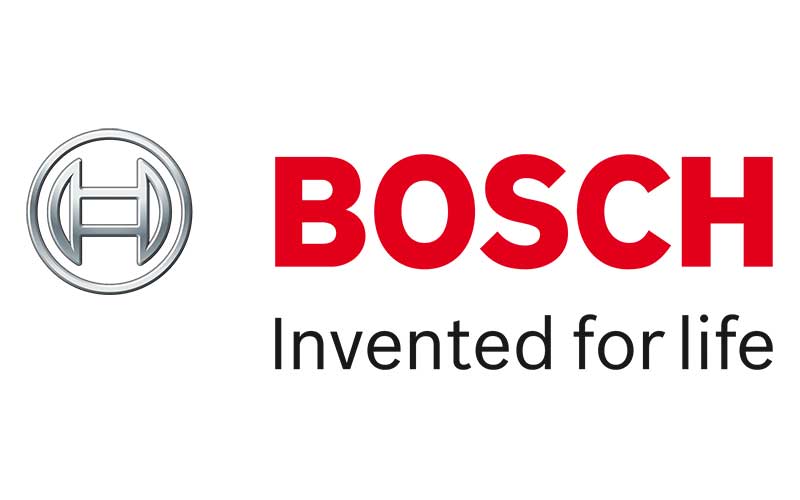
1 year limited; +4 years on electronic components, racks, rust-through on inner tub liner Click Here 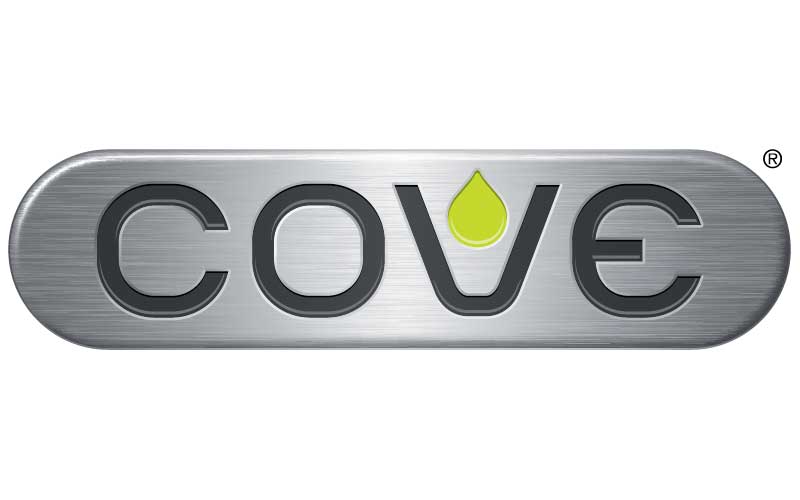
5 year full; limited lifetime on door liner and tub Click Here 
2 year limited Click Here 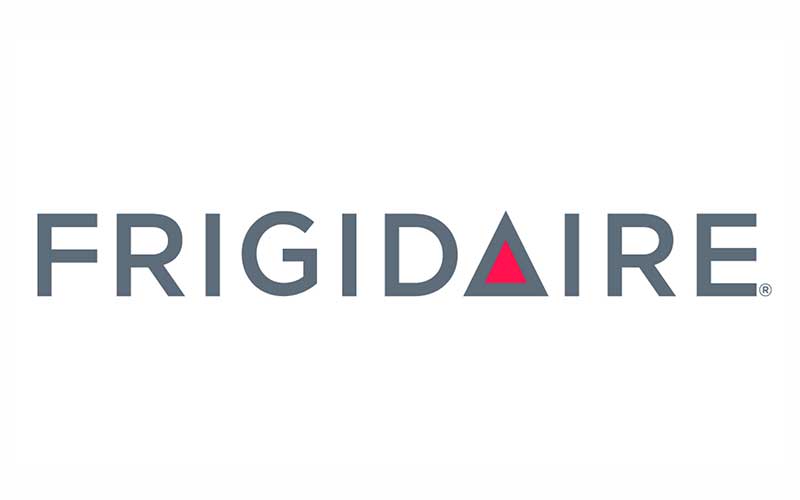
1 year limited Click Here 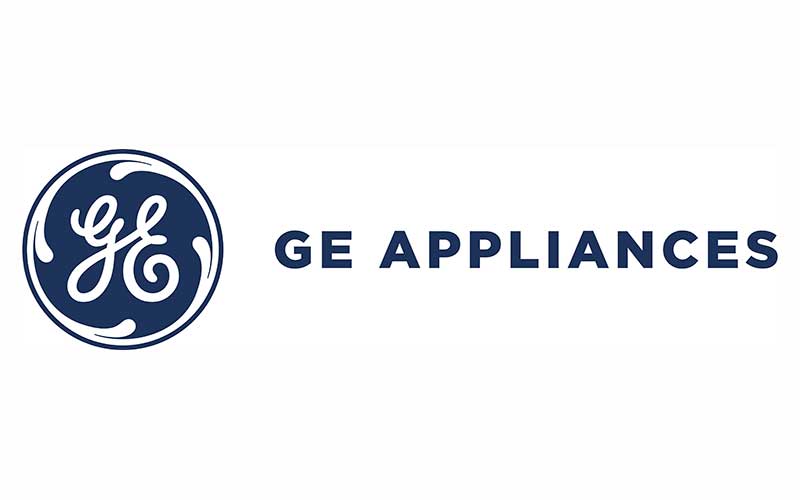
1 year full; +1 year limited on all parts; +3 years on racks and control board; lifetime on inner tub liner Click Here 
1 year full; +4 years on control board and racks; +9 years on direct drive motor; limited lifetime on door liner and tub Click Here 
1 year limited; +1 year on all parts; +4 years on electronics, racks, motors; +9 years on door liner & tub Click Here 
2 years limited; +3 years on electronic parts, racks; lifetime for rust-through on tub liner Click Here 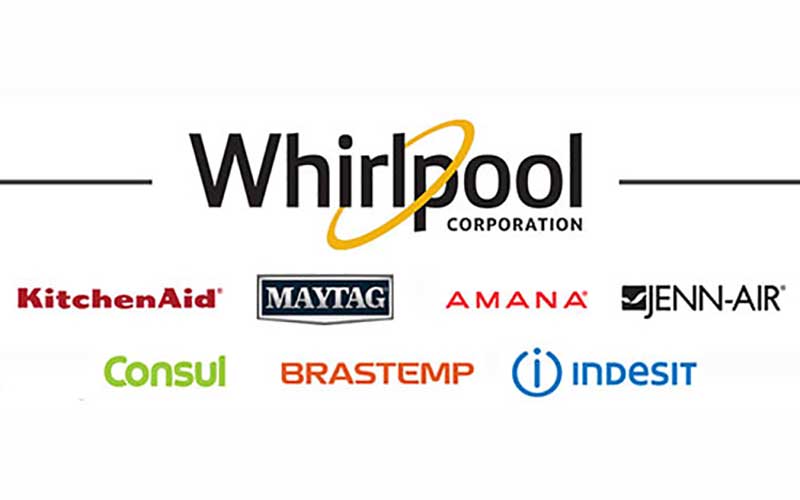
Varies Click Here

Todd Daganaar
Todd Daganaar is the president of Hometown Hero Appliance Repair (Hometown Hero)—based in Omaha, NE—which has been in his family since its founding in 1988. He’s been fixing appliances since he was two (though it took till he was 16 before he found any success at it). Since taking over the company in 2011 and placing an emphasis on technical training and product knowledge, Hometown Hero has grown over 300%, secured authorizations from nearly all major appliance brands, and expanded into Lincoln and Des Moines. Todd graduated summa cum laude from the University of Nebraska at Omaha, majoring in religious studies and focusing on Sanskrit and Indology. He has a wonderful wife, two dogs (one of which is also wonderful), and two objectively amazing daughters.








